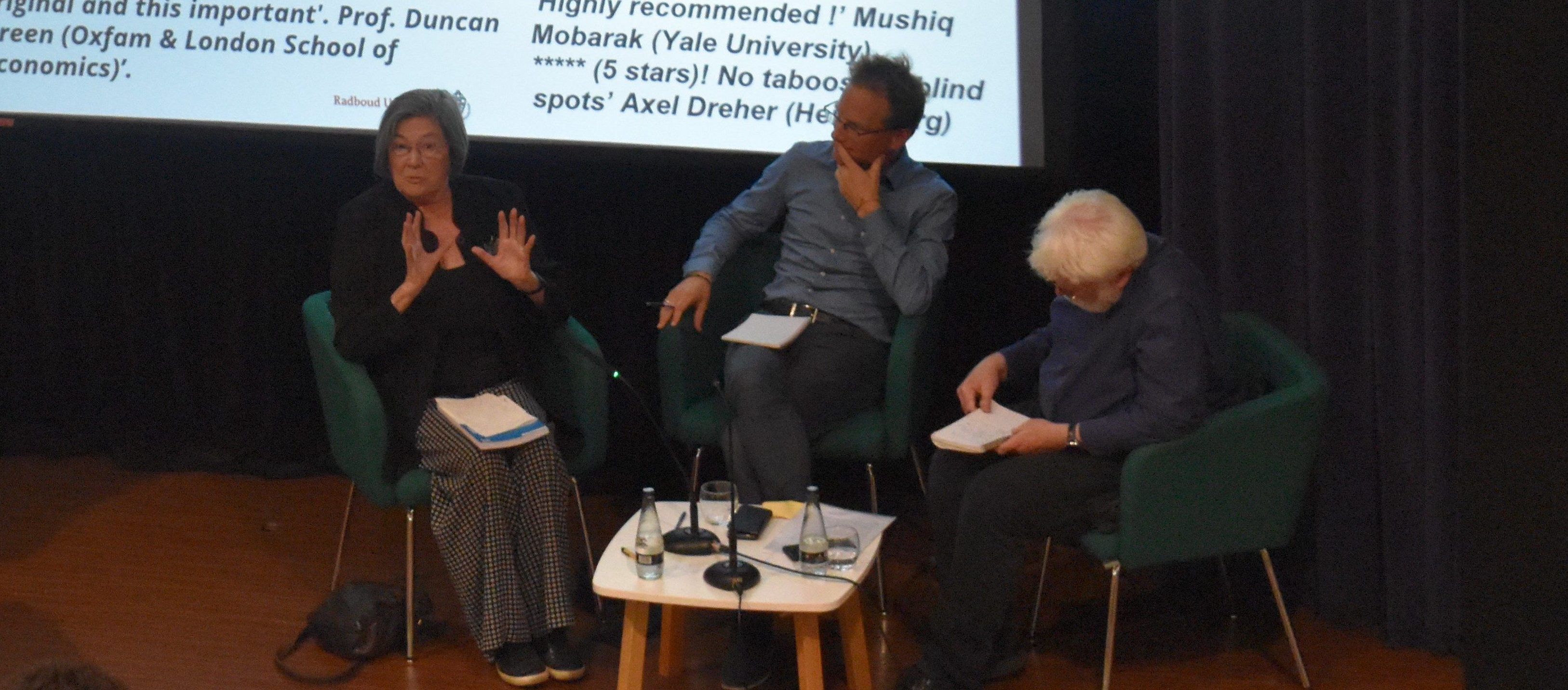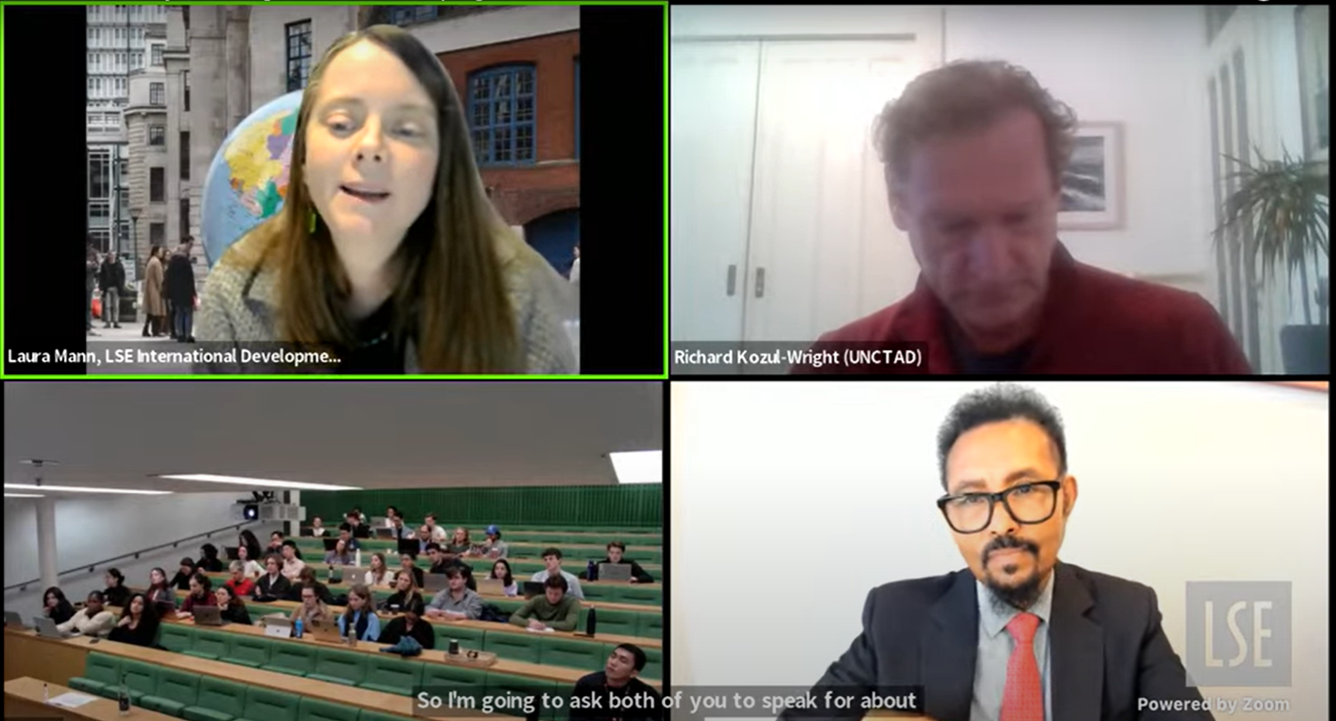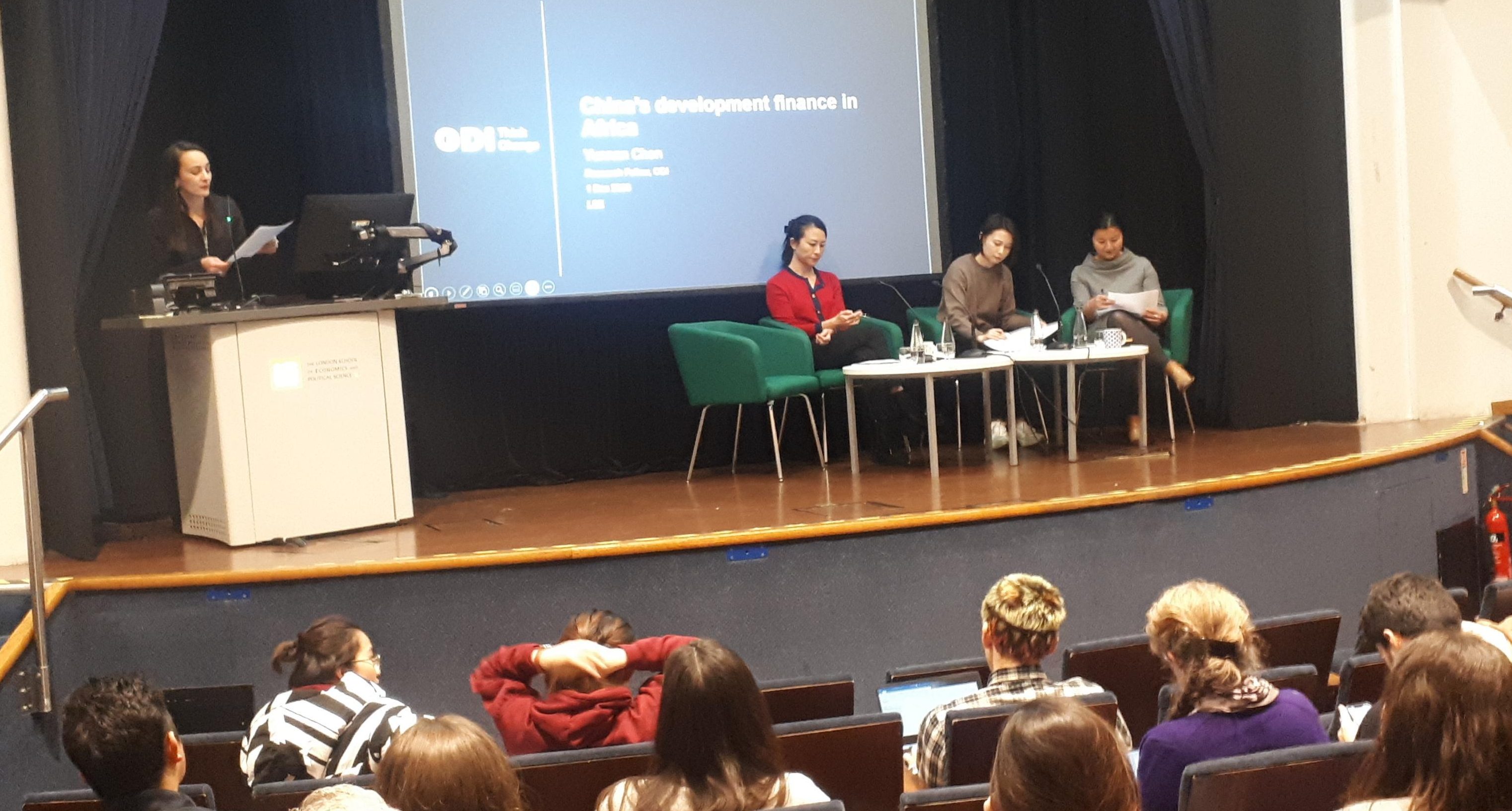On Friday 26 January, Hong Yu and David Soskice joined us for a discussion on ‘Bringing Cyberspace Down to Earth in China: From smart-cities to village digital projects’ as part of the Cutting Edge Issues in Development Lecture Series for 2023/24. Chaired by Dr Laura Mann. Read what MSc student LaiYing LI took away from the lecture below.
You can watch the lecture back on YouTube or listen to the podcast.
Hong Yu shares her insight on China’s shift from cyberspace to cybersphere. China is now in a stage of turbulence and a paradox of whether to maintain its participation in a neo-liberal order or move away from its status quo. Nonetheless, adopting reductionist and linear approaches to understanding the landscape would be misleading and incomplete.
She first clarifies the ‘internet’ with three features, i.e. materiality, relationality, and disagreement. Social relations define relationality, on one hand, the internet enables communicative action and paves the way for internet expansion, on the other hand, power influences social relations. Disagreement-wise, the internet is not given, but an artifact that helps explore cyber-politics. The modernity of China has largely to do with internet development, specifically digitalisation.
Two case studies in China, namely Digital Village and City Brain, are introduced. The emergence of the digital village is well-supported by live-streaming schools, spatialised live broadcasts, and socialised e-commerce. The goal is to accelerate the local production for trans-local marketing and distribution. Whereas City Brain is a digital governance program with ‘3R’: Reconfiguring artifacts, reforming social arrangements, and remediating communicative practice. One crucial thing in both cases would be the involvement of (local) government. The land for live broadcasts is owned by the local government while the private sector manages the broadcast. The government launches a joint venture in the City Brain program. In China’s context, political and market power derived from the government and corporations shall be considered.
In the end, she concludes the lecture by addressing that communication is beyond the binary thinking of network and hierarchy. We shall trace the roots in more specific, and perhaps territorialised approaches. Also, she talks about the state as a communicative entity in understanding the historical complexity. Apart from traditional political and economic approaches, China is a community actor as well.
As a former Communication student, Hong Yu’s presentation has offered an alternative scope in seeing China’s cyber development through the adoption of the digital village and city brain. Her presentation with a more nuanced exploration of ‘the internet’ enables the audience to think outside of the box. It is also my pleasure to write on the last official face-to-face cutting-edge lecture this academic year.
The views expressed in this post are those of the author and in no way reflect those of the International Development LSE blog or the London School of Economics and Political Science.





